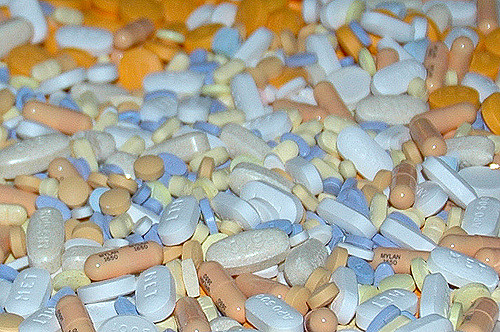In addition to the incredibly expensive modern day hospital fees, pharmaceutical treatment of a variety of illnesses has become increasingly taxing. With the recent scandal involving Martin Shkreli, a hedge fund manager and CEO of Turing Pharmaceuticals, and his 5000% price hike of Daraprim, many people are beginning to question the legitimacy of such actions. In September, Martin told ABC News “We’ve agreed to lower the price of Daraprim to a point that is more affordable and is able to allow the company to make a profit, but a very small profit.” His statement calls into question the legitimacy of his claim, the legitimacy of other pharmaceutical price hikes within the industry, and the lack of bureaucratic barriers to prevent such atrocities.
Shkreli’s sudden 50-fold price increase raises many questions; perhaps the most asked is, “Why?” Why is the price of a drug that is nearly 63 years old being increased so drastically? In an interview with PBS, Dr. Peter Bach, director of the Center for Health Policy and Outcomes at Memorial Sloan Kettering Cancer Center, explained, “It’s really that there’s no system in place to hold down drug prices, and companies are just becoming increasingly bold, charging prices that they think the market will bear.” Many pharmaceutical companies claim that these price hikes are implemented to offset the cost of research for new drugs. While this statement may hold some truth, a Quartz article claims that “firms raise prices frequently as they try to make as much money as possible before patents expire, recoup their investments, and make up for the high failure rate of pharmaceutical research.” Perhaps a combination of both a necessity to continue the growth of the company and greed accounts for these price hikes. This claim can also be supported in the PBS interview aforementioned: Dr. Thomas Stossel from Harvard Medical School states that “the only antidote to keeping innovation going is to sustain profitability. Now, the Turing case is an anomaly.” Whether these price hikes are a result of pure greed or necessity likely depends on a case-by-case basis, but it cannot be denied that an increase of 50-fold is a result of greed.
Image Source: PM Images
The development of novel pharmaceuticals has become increasingly expensive; furthermore, drug approval through the FDA takes longer and is more expensive than approval in the past. Although more drugs are currently being passed, the success rate of these developmental drugs is still extremely low. Dr. Stossel estimates that one in every ten drugs submitted to the FDA for approval fails, and the success must pay for these failures. On the other hand, drug hikes are also correlated with greed, as seen in Turing’s recent incident. The price increases that the pharmaceutical industry creates are a highly debated subject. The claim of these companies truly needing the money to sustain their research is dubious at best. One thing is sure, though: there is a distinct lack of bureaucratic measures to prevent this sort of price hike post-FDA approval, and without any sort of preventative measure, the Shkrelis of the pharmaceutical industry will continue to increase their prices.
Feature Image Source: pharmaceuticals by Carlos Lowry










